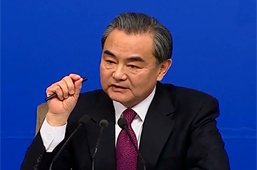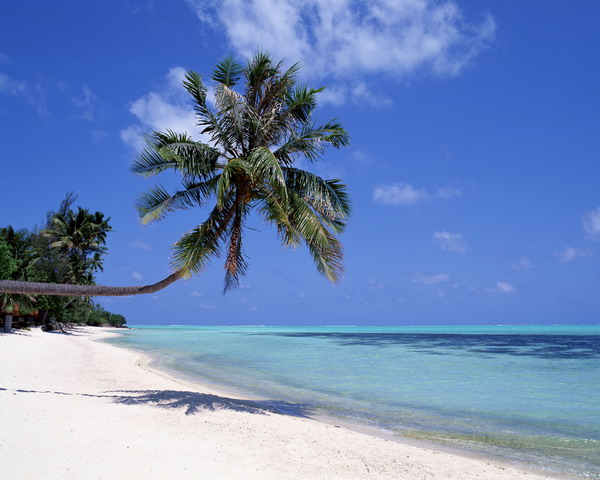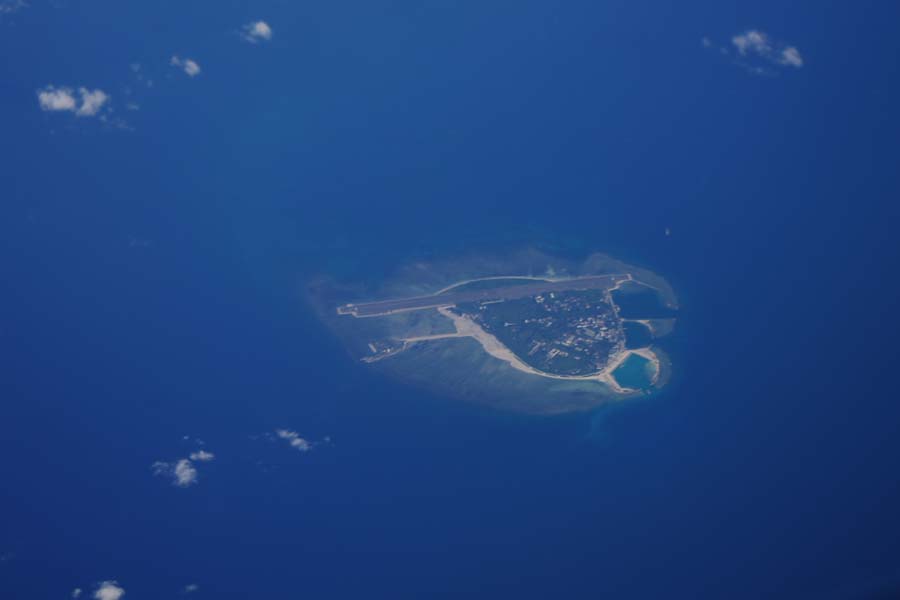On March 28, 2015, the Session of the 21st Century Maritime Silk Road and the ceremony launching of the Year of China-ASEAN Maritime Cooperation were held in Boao, Hainan province. Yang Jiechi, State Councilor, Tanasak Patimapragorn, vice prime minister and foreign minister of Thailand, delivered the speech, Fidel V. Ramos, former president of the Philippines, Kevin Rudd, former prime minister of Australia, Tram Lv Tek, minister of public works and transport of Cambodia, Qiu Yuanping, minister of the Office of Overseas Chinese Affairs, Liu Cigui, Governor of Hainan Province, Zhou Wenzhong, secretary general of Baoao Forum, Wang Hong, administrator of the State Oceanic Administration, Liu Jianchao, Assistant Minister of the Ministry of Foreign Affairs attended the forum, and Chen Lianzeng, dseputy administrator chaired the session and the ceremony.
State Councilor Yang Jiechi delivered a speech "Jointly Build the 21st Century Maritime Silk Road by Deepening Mutual Trust and Enhancing Connectivity" at the session. Mr. Yang stated that China was ready to listen to suggestions and proposals from other countries, ASEAN member states included, and a good job in this regard required three key words. The first word is trust. Asia on the whole enjoyed stability with relations between countries growing steadily. Of course, there was the need for some neighbors to further enhance trust and dispel misgivings. Asian member states enjoyed bright prospects for win-win cooperation. We shall take forward our maritime cooperation with confidence and sincerity. And through building the Maritime Silk Road, we can deepen our mutual trust and work together to maintain peace and development in the region. He reiterated that as the 21st Century Maritime Silk Road focused mainly on economic and people-to-people cooperation, it would not, in principle, involve issues of controversy. The Belt and Road Initiative was consistent with the principles of China's neighborhood diplomacy, namely, affinity, sincerity, mutual benefit and inclusiveness. The 21st Century Maritime Silk Road was by no means a tool for any country to seek geopolitical advantages. Rather, it is a public good for all countries. It would tolerate no monopoly or coercion of whatever form. Rather, everyone was equally treated while business was conducted through consultation. The second word was connectivity. Countries along the Belt and Road differed in national conditions and varied greatly in level of maritime development and protection. It was neither realistic nor advisable to measure them against the same set of ideas, plans and model of cooperation. One of the original features of the 21st Century Maritime Silk Road was its much stressed connectivity. It was not about one party accepting the plan made by another or one party following the rules set by another. It was instead an exercise of looking for common ground and areas of cooperation on the basis of mutual respect, leading to the formulation of a joint plan. There were mainly connectivity of development strategies, project and enterprise matching, and institutional connectivity. The third word was early harvest. Only when countries along the route reaped the benefit from the development of the Maritime Silk Road at an early date would they become more enthusiastically involved. China hoped to work with countries along the route in identifying some demonstration projects, getting them started once conditions are ripe so that results could be gained at an early date. China was ready to work with ASEAN member states to conclude without delay an inter-governmental cooperation document on jointly building the Maritime Silk Road, and started to draw up cooperation plans and identify key cooperation projects.
Mr. Yang emphasized that this year was the Year of China-ASEAN Maritime Cooperation. China and ASEAN member states would carry out practical cooperation on maritime economy, maritime connectivity, maritime science research and environmental protection, safety and security, and cultural and people-to-people exchanges on the sea. We would open a China-ASEAN maritime cooperation center, set up a China-ASEAN maritime emergency helpline, and launch the China-ASEAN Ocean College. We hoped that maritime cooperation would become yet another new highlight and a new engine for the growing China-ASEAN relations and the all-dimensional maritime cooperation between China and ASEAN would become a model for the development of the 21st Century Maritime Silk Road.
Tanasak Patimapragorn applauded China's proposals in establishing the Asian Infrastructure Investment Bank and the Silk Road Fund, saying that connectivity, offering vast development opportunities for countries alongside the Maritime Silk Road, was significant for regional food and energy security as well as its peace and stability. The 21st Century Maritime Silk Road united countries and people together with the spirit of mutual trust and win-win cooperation. It was in line with interests of all parties as it promoted peace and stability around Asia. This year marked the 40th anniversary of the establishment of diplomatic ties between Thailand and China. The country appreciated the long-term friendship with China, and hoped to strengthen connectivity in both overland and maritime routes, so as to promote the prosperity of Asia.
State Councilor Yang Jiechi joined Tanasak Patimapragorn in turning the helm, marking the launching of the Year of China-ASEAN Maritime Cooperation.
In the discussion of blue economy and win-win cooperation, Administrator Wang Hong illustrated how to promote the development of blue economy against the backdrop of building the 21st Century Maritime Silk Road. Mr. Kevin Rudd, Governor Liu Cigui, and Minister Tram Lv Tek also made remarks in the discussion session.
Mr. Wang Hong pointed out that blue economy was of the natural requirement of sustainable development. Currently, the concept of blue economy had gained increasing recognition from maritime countries and relevant international organizations. China had witnessed an economic form that was highly dependent on oceans since its reform and opening up. This form was no doubt to be continued for a long period in the future, which required China to pursue an economic growth mode of "seeking harmony with oceans as their friendly partner". This meant indeed the blue economy, whose core was for coastal countries to strike a balance among economic growth, ecological protection, and resource utilization.
Mr. Wang Hong stressed that the blue economy was a vital component of the 21st Century Maritime Silk Road, which required the awareness of the ocean. It would not be possible to realize connectivity in policies, infrastructure, trade, financing, and ideas without the ocean. With its vital role in the building of the 21st Century Maritime Silk Road, the ocean was fundamental to regional integration. That is why we shall not abandon the philosophy of blue economy in advancing the 21st Century Maritime Silk Road; instead, we should pursue the blue economy so as to make the ocean peaceful, secure, eco-friendly, and prosperous.
Mr. Wang also shared with attendants China's experience in developing the blue economy. China stuck to treating the ocean and the land as a whole and matching the two properly. The country pursued integrated maritime management based on ecosystem and promoted maritime industries with technology and innovation. It gave priority to the wellbeing of people, seeking a balanced development among economy, society and environment. To boost international cooperation in the 21st Century Maritime Silk Road, he made proposals in furthering maritime cooperation partnership, advancing blue economic growth, strengthening cooperation in maritime technologies and innovation, deepening coordination in environmental protection and disaster prevention and mitigation, and facilitating people-to-people and scientific exchanges.
About 200 officials, diplomats, businessmen, and journalists from Brunei, Cambodia, Indonesia, Laos, Malaysia, Myanmar, the Philippines, Thailand, Vietnam, and China attended the forum.



 Overview
Overview Resources & Environment
Resources & Environment



 QQ 好友
QQ 好友 微信好友
微信好友 易信好友
易信好友 QQ空间
QQ空间 朋友圈
朋友圈 百度空间
百度空间